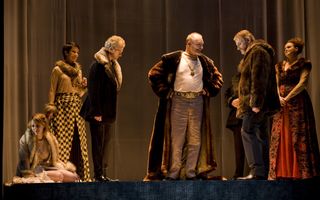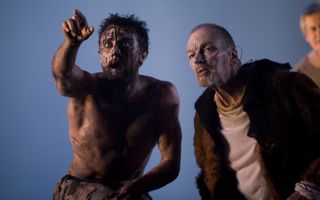
In this task, students consider one of the key questions of King Lear, i.e. who is most to blame? Has Lear’s past treatment of his daughters set them up to reject him, or are Goneril and Regan simply power-hungry and ungrateful children? Students also consider what is missing from the play, and how the lack of information about the history of the central characters leaves them open to interpretation. This task is also an opportunity to practice basing critical opinions on evidence from the text.
Goneril and Regan’s behaviour towards their father is often harsh, cold, and cruel. However, King Lear has been interpreted by some as a selfish, vain, and overbearing father, and can be argued that his past treatment of his daughters may have contributed to their responses to him. Having said that, there is little indication in the play of what Goneril and Regan’s relationship with their father has previously been like, or what their childhoods with him were like.
Mock Trial
- You will be divided into two groups by your teacher. Group One will take the side of King Lear, and Group Two will represent Goneril and Regan.
- Spend some time as a group looking at evidence from the text, and considering why you think Goneril and Regan behaved in the way they did, as well as what you think Lear is like as a person. Based on this evidence from the text, craft a case defending the character(s) you have been assigned.
- You will then conduct a mock trial of these characters. Imagine that Goneril, Regan, and Lear have all survived the events of the play and are being held accountable for their actions.
- Select one person from your group to act as a ‘lawyer’ for your character(s), and one person each to play the characters themselves. Take turns putting Goneril, Regan, and Lear on trial.
- Allow them a chance to defend themselves, before being questioned by their own lawyer, and cross-examined by the opposing team’s lawyer. (Although your arguments should be based on evidence from the text, you can get creative here. Shakespeare does not give much indication of the history of these characters, so you have a chance to come up with your own creative examples that illustrate what these characters were like before the events of the play began.)
- At the end of the trial, make a judgement as a class on whom you think is most to blame.
Extension activity: Write a script based on the mock trial and rehearse it for performance, as if it is a sequel to Shakespeare's original play. Give your script a title.




